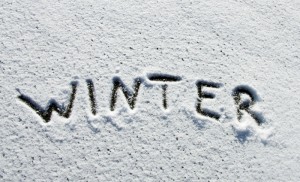Snow has begun falling all over the country, meaning winter is just around the corner. With forecasts calling for another brutal winter, keeping warm will be on everyone’s mind. That means people have dug up warm jackets, hats and boots to protect them against the elements, but that only takes care of staying warm outside. Keeping warm inside is another story. For homeowners with fireplaces or wood stoves, staying toasty could mean lighting a fire. Of course, along with burning fires in the fireplace or stove comes proper maintenance of the chimney to keep everything functioning safely and efficiently.
 While the many dangers of cold weather to people are obvious, many people do not realize the chimney may also need special protection in winter. The most insidious danger to a chimney during winter is actually water. It can cause a number of issues to the chimney and to the home without the proper intervention.
While the many dangers of cold weather to people are obvious, many people do not realize the chimney may also need special protection in winter. The most insidious danger to a chimney during winter is actually water. It can cause a number of issues to the chimney and to the home without the proper intervention.
Masonry chimneys suffer especially from water exposure. Chimneys made with masonry materials – brick, stone, mortar, and concrete – are susceptible to water damage because of the porous nature of these pieces. Aside from stone, masonry materials readily absorb water. While the absorption of water in and of itself causes relatively little harm, what happens later can certainly wreak havoc. When winter temperatures fall below freezing, water begins an ongoing freeze and thaw cycle in which it repeatedly contracts and expands. This includes the water inside the bricks, mortar, and concrete, so these materials also experience the continuous motion. Over time, this degrades the strength of the individual materials, leading to cracks, missing mortar, or even collapsed structures. The cost to repair these preventable damages can add up quickly. Instead, ask a chimney specialist about the affordable application of a permeable sealant to the chimney to protect it.
Another issue that all types of chimneys can suffer from in the winter is water leaking inside. Even though most winter precipitation in Maryland consists of snow, the snow that lands on top of a warm chimney quickly melts into water that can seep easily into the chimney. The first way water damages the interior of the chimney is by causing the flue lining to rust. The flue lining protects the home from the heat of the fire, so if water rusts a hole in the lining, the home becomes exposed to the heat. This could potentially cause a house fire. Water could also continue farther down the chimney and rust the damper or the face of the fireplace. Water damage may even appear on the ceiling and walls surrounding the fireplace if enough water is allowed into the chimney. A simple way to prevent these costly damages is to ask a chimney sweep or inspector about installing a chimney cap.
If you live in the area surrounding Elkton, Maryland, contact Ace Chimney Sweeps for a professional consultation. These experts can help keep your chimney safe this winter.
